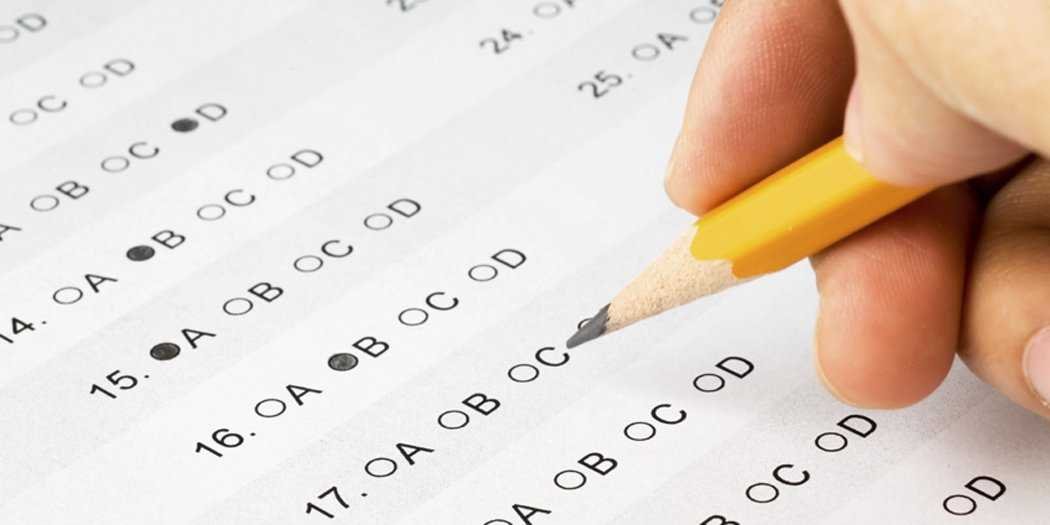This is a question we’ve been getting a great deal since the June LSAT and something we also bounced around the entire Spivey Consulting team in a large and lengthy group discussion. Here is how we look at it, with a brief bit of salient history. Apologies in advance for the length of this post; I’ve tried to incorporate different parts of the many inquiries we have received into this one blog.
When I, and a few of my colleagues at Spivey Consulting, first started admissions in the late '90s, the ABA and USNWR collected all LSAT scores. I bring this up because during that period schools DID care very much about average LSAT score because it was the LSAT metric used. As an important practical matter, that averaging fact was consistently messaged in ‘our’ (I was on Team Law School then) literature, on our web pages, and ingrained in how we counseled applicants. It was part of our accepted culture that we should average. Indeed we were told the average score was closer to a candidate’s true score than any singular take — hold that thought, because I will revisit it at the end.
Around 2005 the policy was changed, and only the high score was required to be reported to USNWR. You can guess what happened, because you can envision what you would do as an admissions dean. Your mandate is to enroll the most highly credentialed class that you believe will excel at the school, and the most heavily weighted rankable credential became the high LSAT score and the high score alone. That said, there were also more faculty admissions committees in 2005 than there are now, and change in culture is generally slow at first. So high scores were the most important, but other scores carried a heavier psychological impact. That impact wore down over the years, and the number of schools that used faculty admissions committees shrunk. By 2010, two or three LSAT scores were entirely fine, with only the high score being reported to measure the LSAT across all platforms. Want an extreme example? In 2013, Karen Buttenbaum and I jointly worked with a client who was admitted to NYU on his 6th take in a multi-year process for him.
In May of 2017, LSAC announced it was changing its policy, so you could test an unlimited number of times, ditching the three takes in two years policy. This is what I wrote immediately following that and after speaking with deans of law schools, admissions friends, experts on my team, etc.
“This raises an important question: Should you take the LSAT 3+ times?
The standard advice is to thoroughly prepare for your first LSAT and, ideally, to only take it once. Unfortunately, this isn't an ideal world, and oftentimes applicants will find that they did not perform to their full potential on their first take. In those cases it is often a good idea to attempt a retake, since in general law schools only consider the highest score. It is the only score factored into USNWR rankings, after all. However, this principle begins to progressively deteriorate after 3 LSAT takes, barring a substantial explanation. (For instance, one of our clients experienced a significant medical issue during two of his LSAT takes, and after cancelling those scores he went on to score highly on his fourth test — these are the kinds of circumstances under which multiple retakes are likely appropriate. For him, it would have been great if he didn’t have to wait until the 2 year limit had ended to retake).
Additionally, it’s important to realize that schools may not look more favorably on additional tests just because you wanted to take them (just like they don’t want more letters of recommendation than they asked for — please also keep that in mind). An abnormally large number of testing attempts without a sound addendum may show a lack of judgment to the admissions offices. Or, for example, retaking a 176 is more likely to hurt than help you, even if you get a 178. It’s a red flag to most schools to obsessively aim for a score over a 176. Does that mean you shouldn’t take the test again if you already have three takes? Not necessarily. Admissions offices may question the judgment or obsessiveness of someone with five LSAT scores, but at the end of the cycle if their numbers aren't on target, they will still be likely to admit that applicant off the waitlist if that applicant has a fourth or fifth score that is the highest and meets the school’s need.
Here are some questions you might want to ask yourself before taking the test for a 3rd or more time:
1. Did something significant occur during my previous testing that I know impacted my score? (Examples of this are a medical issue, a family emergency that had your attention, a fire alarm kept going off in the testing center, etc.)
2. Do I just think I can do better — why? For example, have I significantly changed my study strategy of the logic games and suddenly it’s clicked for me? Are my diagnostic tests significantly better than before I took my last exam? Do I really believe I can score higher, or do I just want to score higher?
Ultimately, you may be able to take the LSAT for a fourth time and beyond, but the policy change doesn't alter the fact that, barring rare circumstances, you should think carefully why you are doing so."
So what's the point, Spivey? Has anything changed since you wrote that? Well, no, nothing has changed from the above advice — except we are at the dawn of a new cycle, and new cycles bring back the terrible mythical notion that schools average. Remember that culture of counseling on averages and messaging on averaging I mentioned at the beginning. There are still vestiges of that all over the internet, even at times on schools' websites themselves, so every cycle brings with it the false concern about taking the test more than once because of “averaging.”
To punctuate all of this, let me use the following example, a version of which has been asked of me every day multiple times since the Monday, June 2018 LSAT.
“Hi, I have two LSAT scores, a 167 and 168, and I am very much targeting T6. Should I retake even if I think it’s possible my 168 was my max due to test day anxiety? If I go down will it hurt me?”
The answer is, if T6 is by far your dream for whatever reason, you pretty much have to retake anyway. Baring other very strong differentiating factors, a 168 isn’t getting you through the gate. See our recent blog that addresses this in point #3.
Let’s now insert me as the applicant in this equation. What would I do knowing everything I know? I would not once blink about taking it a 3rd time. And a 4th if I didn’t best the 168 mark. Why? Because I know I am not getting into the T6 with a 168, but I also know I can put together a very polished and differentiated application (or at least I better be able to) AND explain in an addendum that the 3rd or 4th take was the right thing for me (there are great ways to do this and horrible ways to do this that we work with clients on; indeed it’s one way we got our client in 2013 in at a T6 with 6 takes). I know in advance if the scenario plays out with a 3rd score of a 166 and then a fourth of a 174, I was advantaged taking the LSAT a 4th time many, many times over. There was never any risk, because the third take going down does nothing bad for my application. I also know that if I get a 169 the third (or fourth) time, I may not get my dream of a top 6, but I also may have just opened the door to a top 8 or 10. Again then, it was all upside.
At schools with faculty committees or with exceptionally strong applicant pools, is it better to have a 174 once than a 167, 168, 174? Yes, I’d rather my CAS report read:
174
Than
167, 168, 174
Or
167, 168, 165, 174
BUT, the 174 is a must anyway, and the two or three (or more) other LSAT scores can be explained in a solid addendum once I get the score I need.
Bottom Line
- If you need a “gateway” score at or above the median of your dream school because you are a strong but not exceptional applicant (under their median GPA, etc.), keep taking the test as long as you don’t think you have maxed out: even up to four or five times. A sixth has worked, as we noted, but I’d also suggest you might want to contact us via email or someone else for advice before a 4th, 5th, or 6th take just to be sure.
- If/once you have a score above their median, you can and should very likely stop taking. A common error is an over focus on the 75th percentile, which is a very small metric for law schools and of zero input into USNWR (although many years ago USNWR did use a calculated median of 25th + 75th percentiles/2 — if they ever go back to that you’d see how quickly schools would switch to caring about 25th and 75th).
- If you have a score above their median and a GPA above their median, a retake might even worry them that they are a safety. Definitely don’t retake.


.png)




